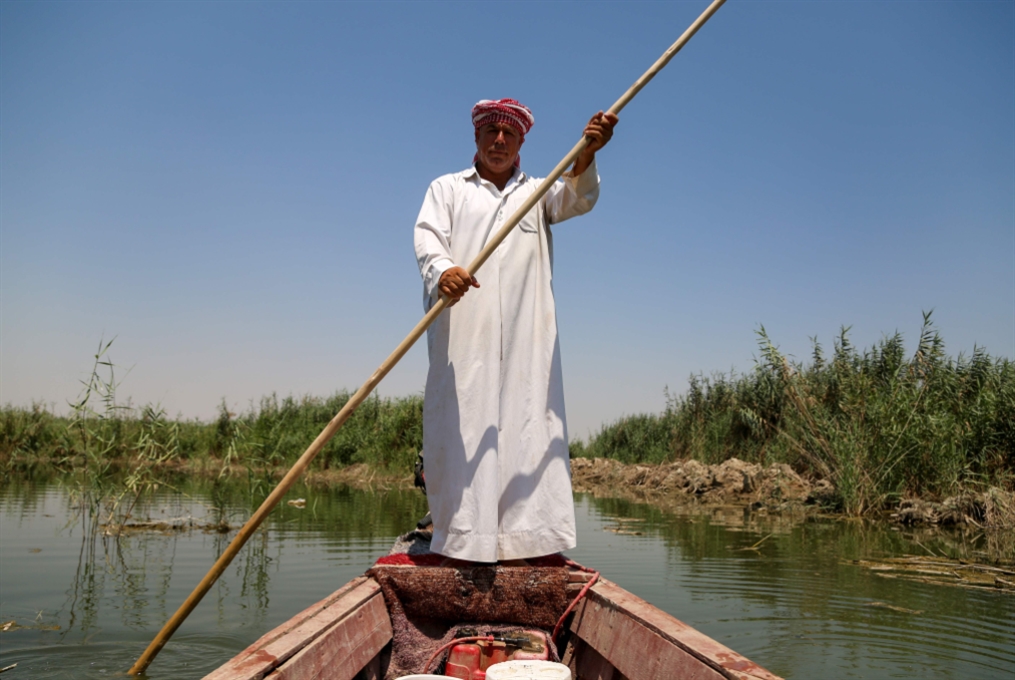
[ad_1]
Perhaps Al-Halbousi wanted his alliance with al-Khanjar to be immunized from any movement against him.
However, last July 20 there was a significant change in the political map of the “Sunni forces”, represented by the formation of a new coalition led by Al-Khanjar (the latter is one of the most prominent faces of the Alliance Al-Binaa, along with Hadi Al-Amiri, Nuri Al-Maliki and Faleh Al-Fayyad). The new bloc initially included members who were in the “coalition of Iraqi forces” (previously led by Al-Halbousi), before the number of its members increased to 25. Regarding this nascent alliance, informed political sources point out, in interview with Al-Akhbar, that on the night of the aforementioned date a meeting was held at al-Khanjar’s house, which was attended by some representatives, while others participated via Skype. Sources add that the meeting led to an agreement on several points, among which the following stand out:
1- Work to unify the “Sunni lists” in the early legislative elections.
2- Limit the nomination for the presidency of the Sunni Endowment to the “Iraqi Fiqh Council”, to cut the way to political competition for this position.
3- Strive to unify the word “Sunni leaders” when discussing the issue of balance in security appointments and in civilian bodies and institutions.
4- The agreement to address the government to speed up the return of the displaced and take advantage of the international position towards the so-called “fugitive weapons” to address the situation in the liberated governorates.
5- Forcing the government to reintegrate some of the elements of the “awakening” to the security institutions, with the possibility of linking them to the “tribal mobilization” or returning them to their positions, but under the command of the commander-in-chief of the armed forces .
6- Pressure to limit the office of Vice President of the Republic to “Sunni blocs.”
7- Al-Halbousi promised to stop the campaign directed at the “Sunni leaders” and to unify the media discourse of those leaders.
These understandings were reached in the absence of some parliamentarians in Nineveh, leading the latter to view them as an attempt to restrict “Sunni leadership” only to the Anbar governorate, Al-Halbousi’s birthplace. They note that the agreement was initially limited to the representatives of the “Arab Project”, with the aim of forming a parliamentary bloc under the name of “the deputies of the liberated provinces”, but they were surprised that Khanjar went to Al-Halbousi, and then her alliance with him without arguing with them. However, this refusal, apparently, will not prevent the opening of communication channels with the new unified leadership, represented, on the one hand, by the dagger, which is close to Tehran, and on the other hand, by Halbousi, in harmony with Saudi Arabia and the United Arab Emirates.
Returning to the terms of the understandings, a political source indicates, in an interview with “Al-Akhbar”, that if Al-Halbousi fulfilled all the aforementioned commitments signed with Al-Khanjar, the deputies of the latter’s bloc “will not they should be part of any measure to remove Al-Halbousi from Parliament. In the future. ” Al-Halbousi’s footsteps, including his defection from the “solution party” (led by Jamal al-Karbouli), predict that he is ready to go ahead with the project of changing the “Sunni political map”, with what this implies in terms of removing the old faces, most of which are lined up behind the former speaker of parliament, Osama Najafi. On the other hand, political blocs, such as the Salvation and Development Front, see Al-Halbousi as a “failure” in the functioning of the legislative body, which from their point of view justifies his dismissal. Therefore, it is believed that Al-Halbousi initiated the alliance with al-Khanjar to immunize himself from any movement against him.
Subscribe to «News» on YouTube here